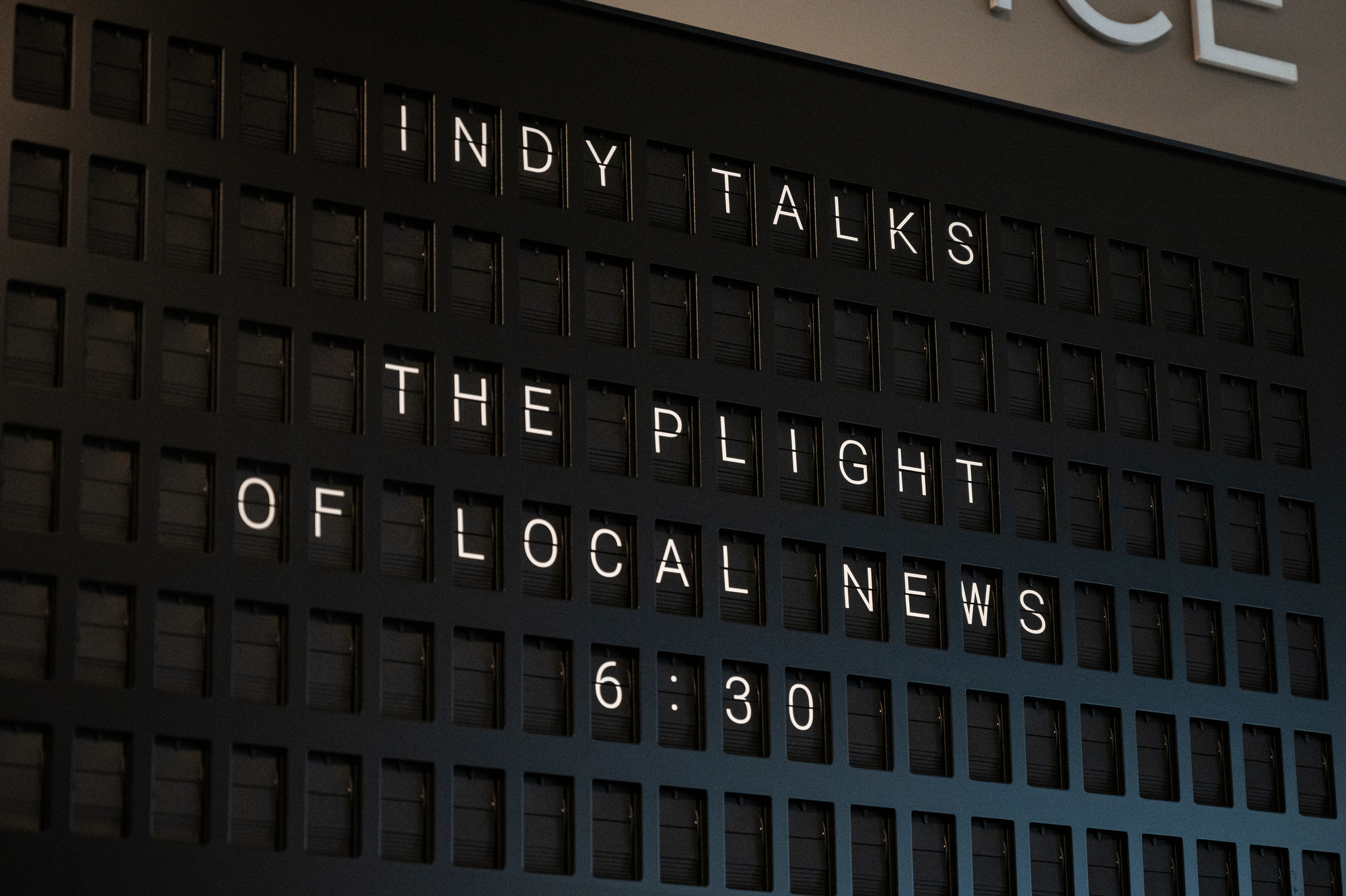Judging by recent layoffs and newsroom closures, the Fourth Estate is cratering.
Last month, The Nevada Independent joined the unfortunate (and long) list of newsrooms that have been forced to layoff journalists as the industry faces financial struggles and an ever-changing business climate. Considering The Indy’s history of balanced, in-depth and fact-focused reporting, the recent slew of layoffs indicate that what ails the industry isn’t limited only to the hyperpoliticized newsrooms of the D.C. beltway.
Instead, it’s industrywide.
The reasons for such turmoil are numerous, but much of it stems from the fact that the 20th century’s business model for providing news coverage has long since evaporated. The emergence of disruptive technological advancements, disturbing political trends and changing cultural attitudes toward journalism itself have all had a hand in fundamentally transforming the financial incentives associated with the craft.
The “information age” has brought us a world drowning in fake news, misinformation and illiberal public discourse — but it has also brought us a world in which members of the news-consuming public find it easier than ever to build ideological echo chambers and intellectual silos. Unfortunately, some within the news industry have been happy to cater to such partisan isolationism as a means of replacing the now obsolete business models of traditional fact-based journalism.
Put simply: Partisan pandering has become more rewarding that straight reporting in our world of division and conflict, leaving many newsrooms tempted to indulge the biases of niche audiences.
During Donald Trump’s presidency, for example, CNN gleefully assumed the voice of the “resistance” by obsessively crafting its news coverage around criticizing the administration — and Fox News shamelessly assumed the role of defending the administration at all costs. The New York Times currently operates more like a progressive college campus social club than a newsroom, and Newsmax makes Rupert Murdoch’s media empire look positively leftist.
Indeed, one doesn’t have to look very far at all to notice such examples of craven populist capitulations from within the industry. And the reason for it is simple: In recent decades, merely “bringing the news” has become less profitable than placating the tribal tendencies of politically divided Americans.
However, one can’t blame only the editors, billionaire owners or managing corporate overlords of America’s newsrooms for this phenomenon. After all, corporate editorial teams are only giving “the people” what they want. Consumers, for their part, have largely rewarded these changes — further incentivizing the abandonment of objective reporting on the national, state and local level.
Such corporate cowardice among certain industry players, however, comes with a heavy cost: A massive erosion of trust among the broader news-consuming public. And that erosion of trust isn’t limited only to promulgators of propaganda.
Quality fact-based journalism has suffered significantly from the collateral damage caused by the politicization of news — endangering the honest work of outlets such as The Indy. Journalists who are focused on uncovering the truth about the world around us, rather than pandering to the cultish inclinations of partisan activists, are routinely maligned as partisan puppets, purveyors of false narratives or political manipulators by those who find their reporting inconvenient.
As consumers, if we want honest and fact-based journalism to endure in our hyperpoliticized world, we must diligently reward objective reporting when it’s attempted rather than merely fleeing to our politically aligned outlets whenever our worldview is challenged.
In Nevada, that means financially contributing to outlets that set out to provide us with solid and unbiased reporting — such as The Nevada Independent. However, it also means becoming evangelicals for the endangered model of hard-hitting journalism that separates the Fourth Estate from the “infotainment” model of so many 21st century media corporations.
Unlike the pandering that many media companies are so inclined to indulge in, real journalism risks being uncomfortably honest with its viewers. It will, on occasion, infuriate us, challenge our deeply held convictions and sow doubt about our assumed perspective of the world. That, after all, is what truth does: It challenges our preconceptions and biases rather than merely reaffirming them.
Unfortunately, such uncomfortably honest truth-based journalism has become a rarified act in our boorishly politicized era of cable news, social media and click-baity online business landscape. However, as consumers, we mustn’t allow the existence of journalistic bias in certain corners of the industry to erode our support for the concept of a robust and free press — nor can we allow ourselves to flippantly dismiss any inconvenient headline as nothing more than “fake news” or partisan agitprop.
In order for quality journalism to endure and fulfill its role as an independent arbiter of facts, newsrooms are going to have to demonstrate they are dedicated to objective reporting even when the financial rewards for doing so are far from certain. Similarly, consumers must vigorously support such efforts, even when it proves hostile to their favorite politician, political party or ideological preference.
As the team at The Nevada Independent has demonstrated over the years, there are plenty of journalists in Nevada who are deeply committed to the former. For the sake of the republic and the preservation of an independent Fourth Estate, I remain ever hopeful there are plenty of consumers ready to commit themselves to the latter.
Michael Schaus is a communications and branding expert based in Las Vegas, Nevada, and founder of Schaus Creative LLC — an agency dedicated to helping organizations, businesses and activists tell their story and motivate change. He has more than a decade of experience in public affairs commentary, having worked as a news director, columnist, political humorist, and most recently as the director of communications for a public policy think tank. Follow him at SchausCreative.com or on Twitter at @schausmichael.

